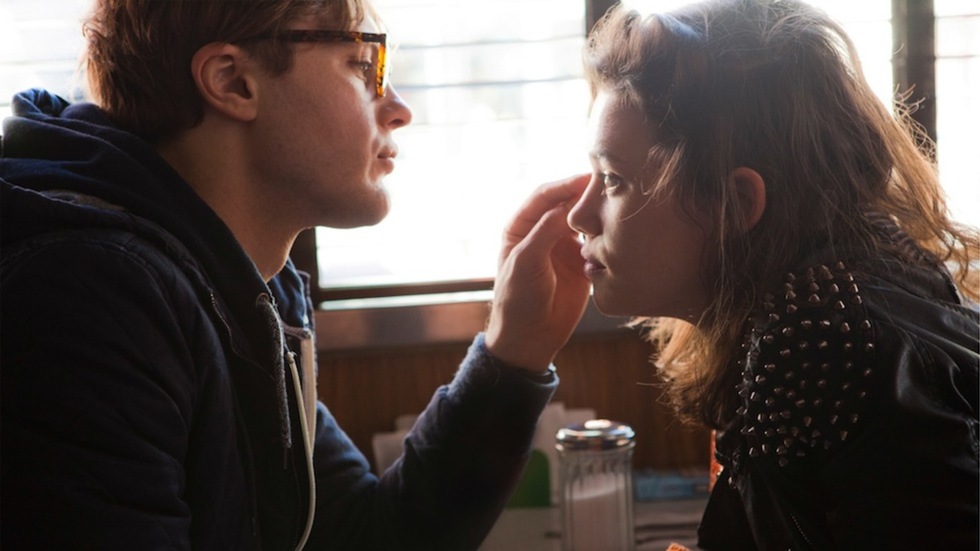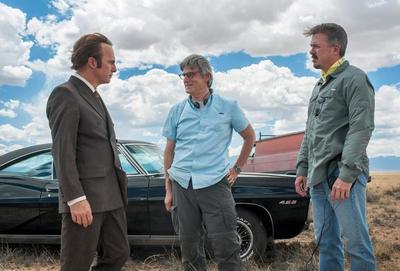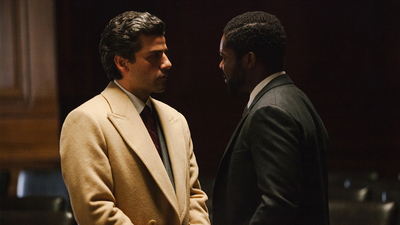
BY ZACHARY WIGON |
Under The Hood: 'I Origins' And The Power Of Refocusing A Narrative
'I Origins' displays an impressive ability to refocus its narrative continually, keeping audiences in its thrall.

One of the mesmerizing things about the mechanics of storytelling is the idea of the acceptance contract. When an audience watches a film, while suspension of disbelief may fall by the wayside at some point down the line, the original conditions of the narrative must be accepted a priori by the audience. That is to say, no one walking into Transformers is going to instantly balk at the idea of giant talking robots; accepting this is a condition of watching the film, and you paid your $13, didn't you? So the audience must accept the primary condition of the film's narrative, no matter how unusual or extraordinary it may be.
Where things get interesting, however, is when a film manages to effectively present new conditions that must be accepted as the story goes along. Often, if these conditions are difficult to accept, an audience member may be "taken out of it." However, if the narrative is refocused properly, and the audience is curious enough to want to know what happens next, they may be willing to keep accepting new narrative conditions regardless of how plausible or implausible they may be.
Such is the case with Mike Cahill's I Origins, which packs an enormous amount of narrative information into its two hours (it almost feels like a lesson in how to economically present complex exposition). I Origins is exciting and mysterious enough that one is compelled to keep accepting the new conditions it requires the viewer to accept, which provides for much entertainment as the film shifts its axis a few times. I Origins is, in different sections, a mystery about a search for an unknown woman; an impassioned romance; a detailed portrait of scientists at work; a tragedy; and, ultimately, an inquiry into the possibility of the supernatural - explored via scientific method.
That is to say that I Origins, more than the typical narrative, is an excellent example of what is one of the most popular approaches to screenwriting in Hollywood today (taught at USC, amongst other institutions): the sequential approach. This approach breaks screenwriting down past a three-act structure, into an eight-sequence structure, and it posits that a good feature film is really a carefully strung together collection of short films. I Origins is just such a film. By consistently shifting the exact focus of the narrative (without, obviously, leaving behind the film's central subject matter), the film manages to entertain simply by presenting so many different stories within one overarching thematic umbrella (which concerns the possibility of the soul and the question of whether or not humans can explain - or disprove - religious phenomena via science).
Without giving too much away, I'll say that I Origins begins with a scientist's search for a young woman he slept with once at a party. It then adopts twin concerns: his research and his relationship with that young woman. Halfway through the film the narrative takes an unexpected leap forward, and the film's concern becomes completely different - until, we realize later on, Cahill is using the new narrative to answer questions that were raised - but never solved - in its first half.
By shifting the film's narrative concern so consistently, Cahill keeps viewers entertained as they realize they have no idea what's about to happen next, and also manages to get them to accept new conditions of the narrative - often ones that seem to flout the laws of reality - because the viewers are so curious to know how this unusual narrative wraps itself up. It's an excellent counter-example against most films, whose closing scenes are so obviously indicated by their openings. The manner in which Cahill continually - and continually unexpectedly - shifts gears creates an atmosphere of tension in the viewer, the realization that anything could happen - and this realization stokes an irresistible curiosity that would lead the viewer to follow the film anywhere.

